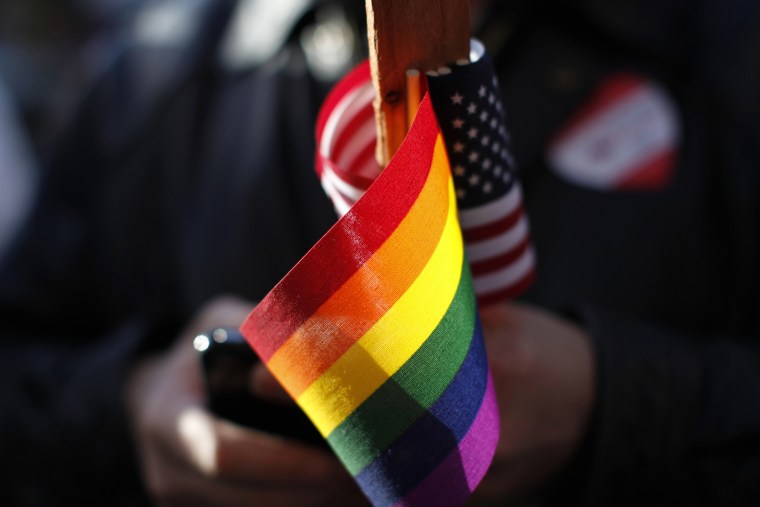The Department of Justice has officially expanded its legal definition of sex discrimination -- prohibited by Title VII of the 1964 Civil Rights Act -- to include discrimination based on gender identity, Attorney General Eric Holder announced Thursday.
The decision, circulated in a memo to all DOJ components and U.S. attorneys, marks a reversal in position, and bars the department from making arguments in court that transgender people are not covered under Title VII, the federal law that prohibits sex discrimination in employment. It also enables the DOJ’s Civil Rights Division to file Title VII claims against state and local public employers on behalf of transgender individuals.
Related: LGBT equality take a massive step forward
“This important shift will ensure that the protections of the Civil Rights Act of 1964 are extended to those who suffer discrimination based on gender identity, including transgender status,” Holder said in a statement. “This will help to foster fair and consistent treatment for all claimants. And it reaffirms the Justice Department’s commitment to protecting the civil rights of all Americans.”
Thirty-two states still lack workplace protections for transgender employees, and the DOJ does not have the authority to file suit against private employers. But LGBT advocates hailed Holder’s announcement as another significant step taken by the Obama administration on behalf of transgender Americans.
“This is in line with administration commitments to justice and fairness for LGBT people generally, and transgender people specifically,” Matt Wood, staff attorney at Transgender Law Center, told msnbc.
Holder’s move builds off of numerous federal court decisions and a 2012 opinion by the Equal Employment Opportunity Commission stating that gender identity discrimination falls under sex discrimination prohibited by Title VII. The Department of Education has also issued guidance clarifying that Title IX -- a law that bars sex discrimination in federally-funded education programs and activities -- includes protections for transgender students as well. And in the most recent action taken by the federal government in the name of LGBT equality, President Obama in June signed twin executive orders barring discrimination against federal employees and employees of federal contractors on the basis of sexual orientation or gender identity.
"What all of this is really demonstrating at the end of the day is that transgender Americans are entitled to fairness and equal treatment under the law."'
In the not-too-distant past, the DOJ has relied on outdated case law to argue that Title VII does not protect transgender federal workers. Holder’s memo “closes the door once and for all” on U.S. attorneys using that argument as a defense in discrimination claims, Wood said.
LGBT advocates stressed that despite these advancements, there remains a need for a statutory bar against workplace discrimination on the basis of sexual orientation or gender identity -- something U.S. lawmakers have tried and failed to accomplish for decades. But steps like Holder’s, they say, still warrant celebration.
“What all of this is really demonstrating at the end of the day is that transgender Americans are entitled to fairness and equal treatment under the law,” Ian Thompson, legislative representative for the ACLU, told msnbc. “That has obviously important legal implications, yes. But I think it also has broader cultural and societal implications in making clear that transgender individuals are entitled to the same respect and dignity as all other Americans.”
